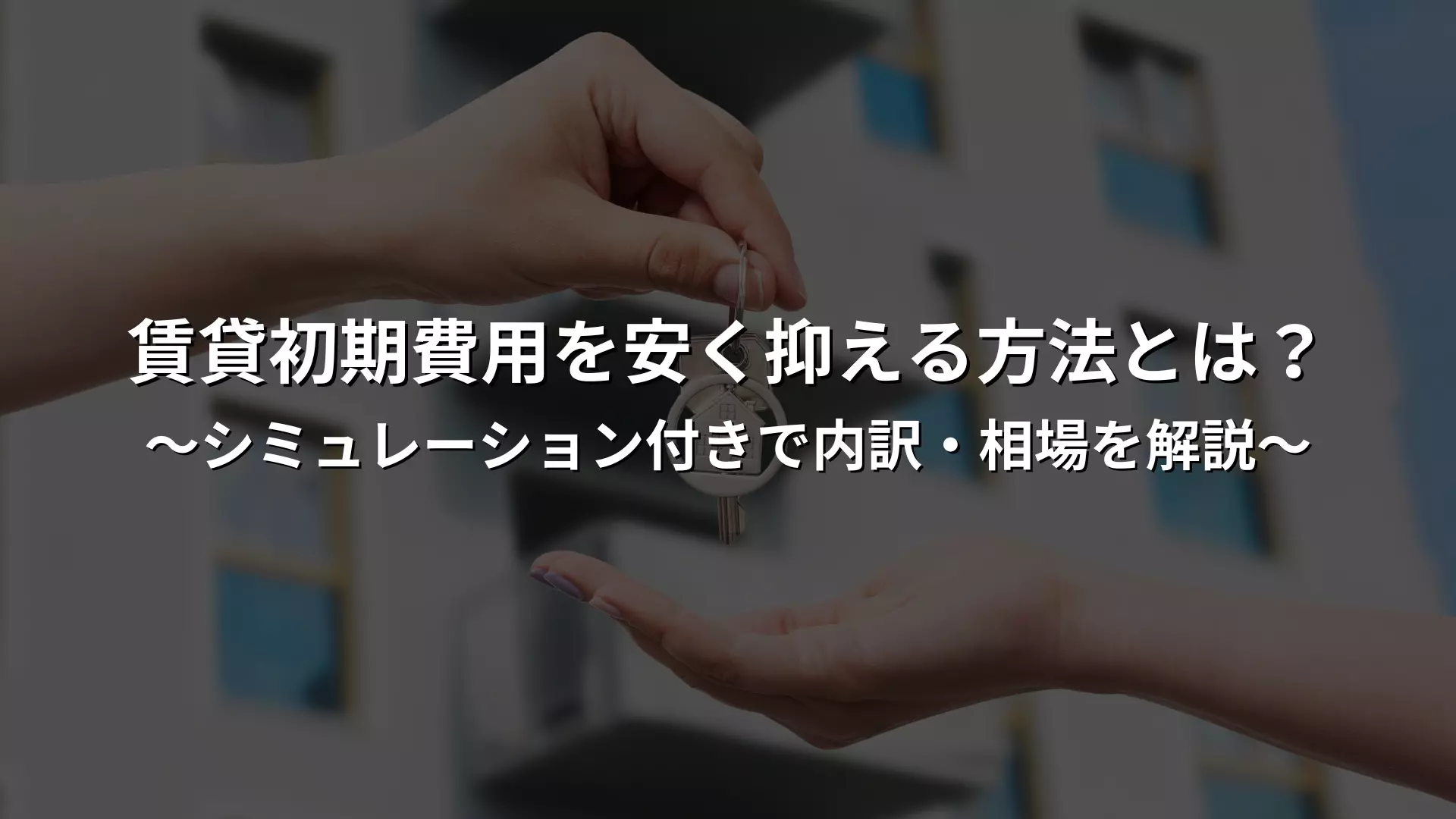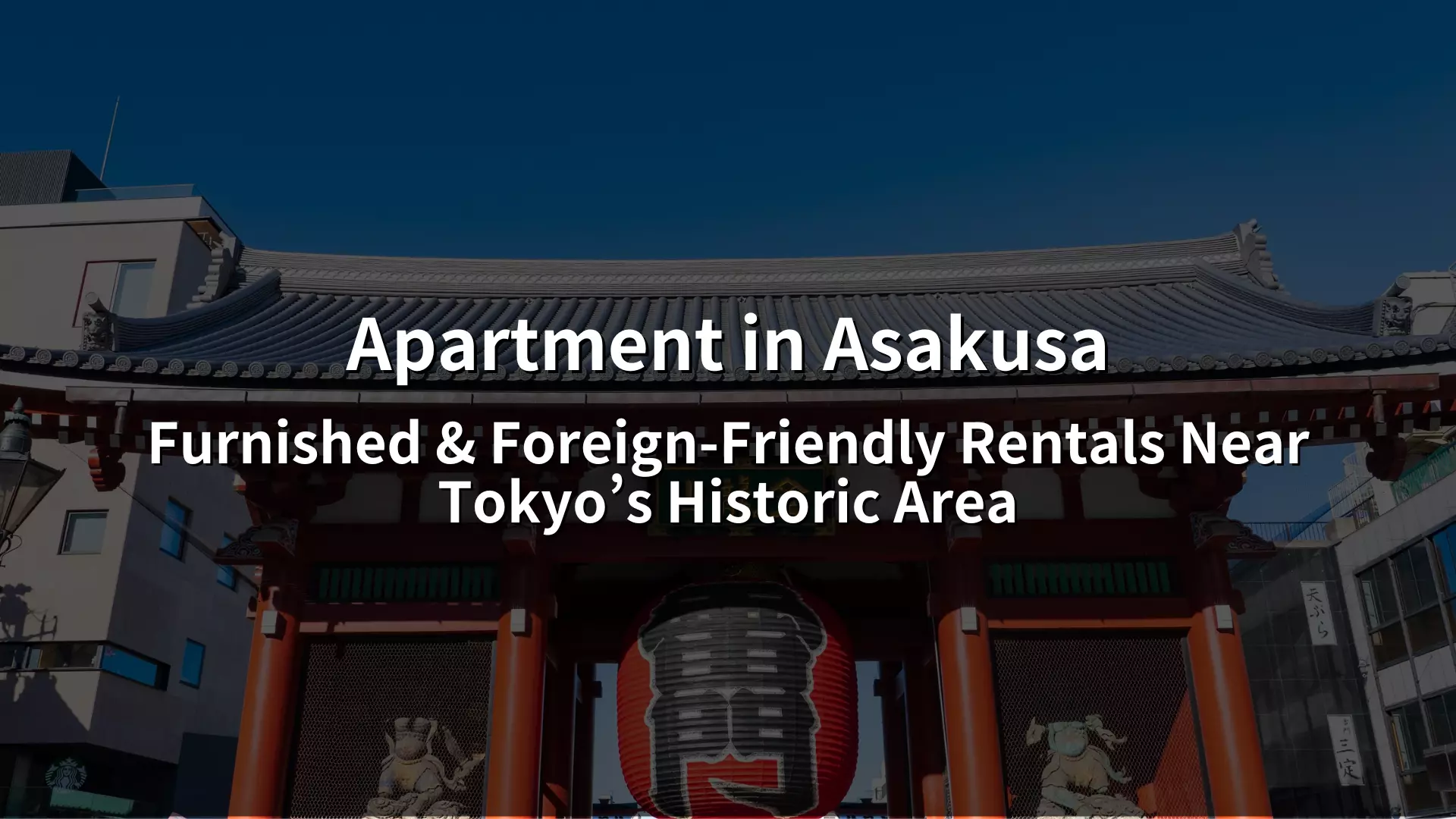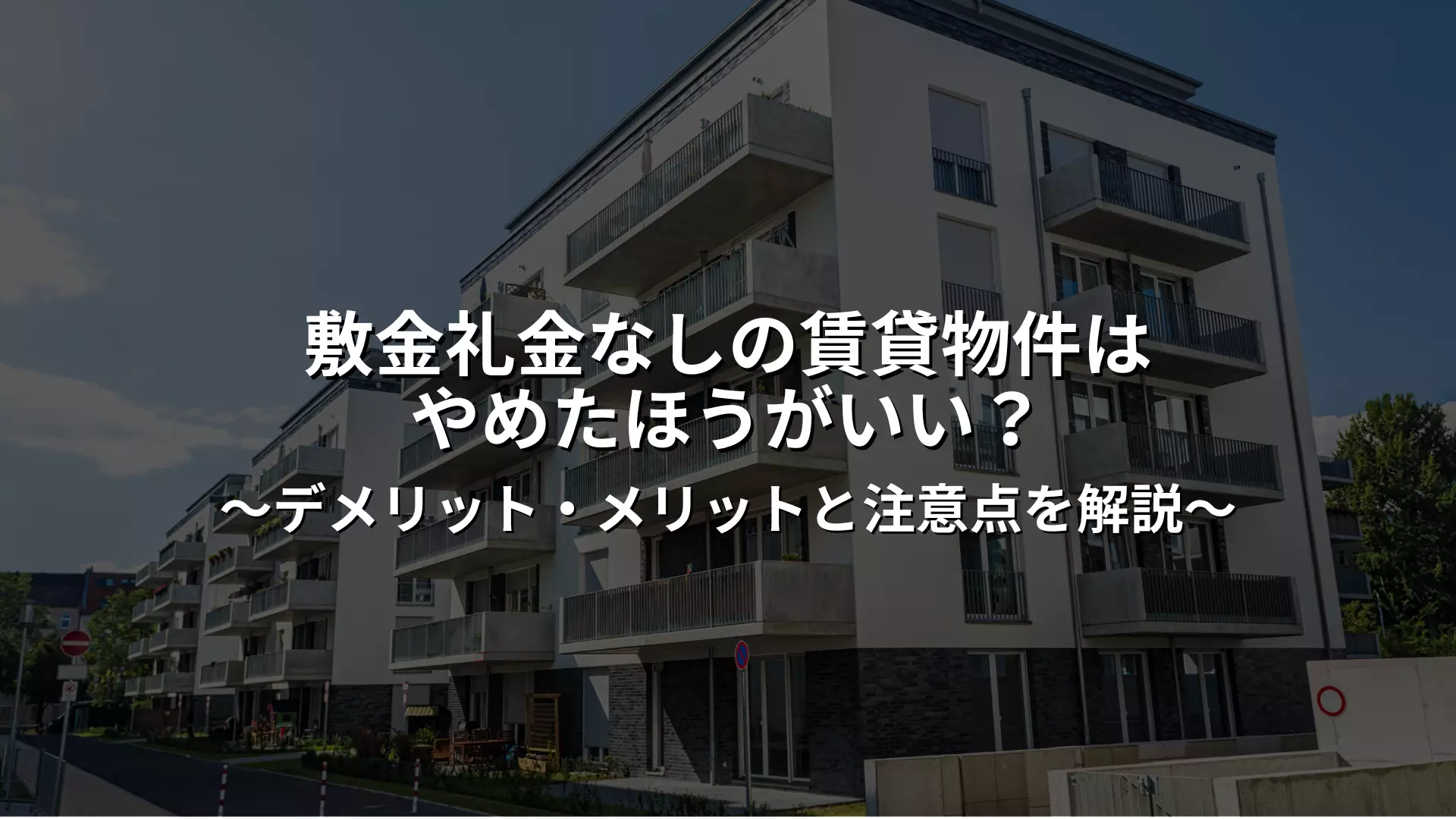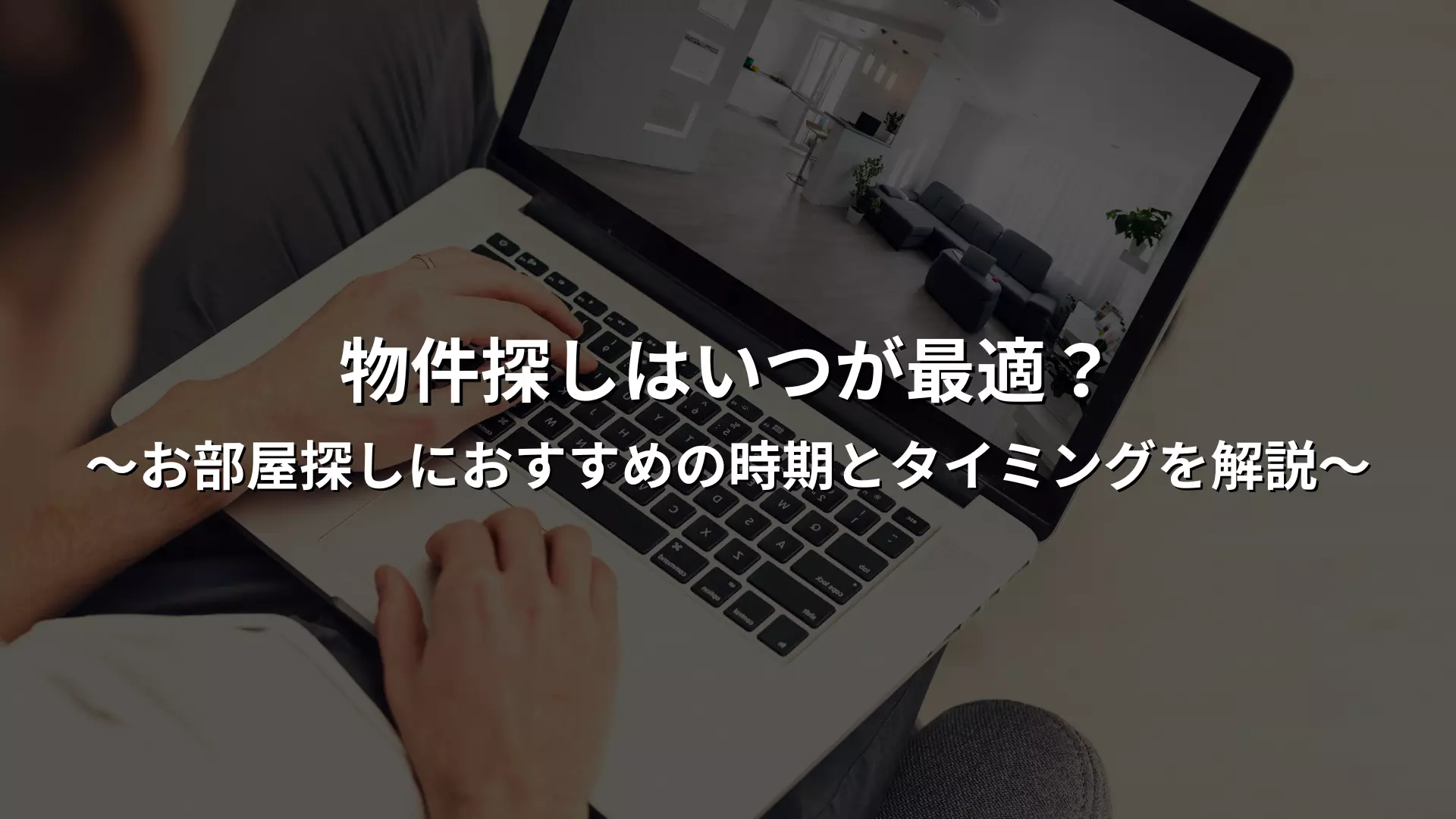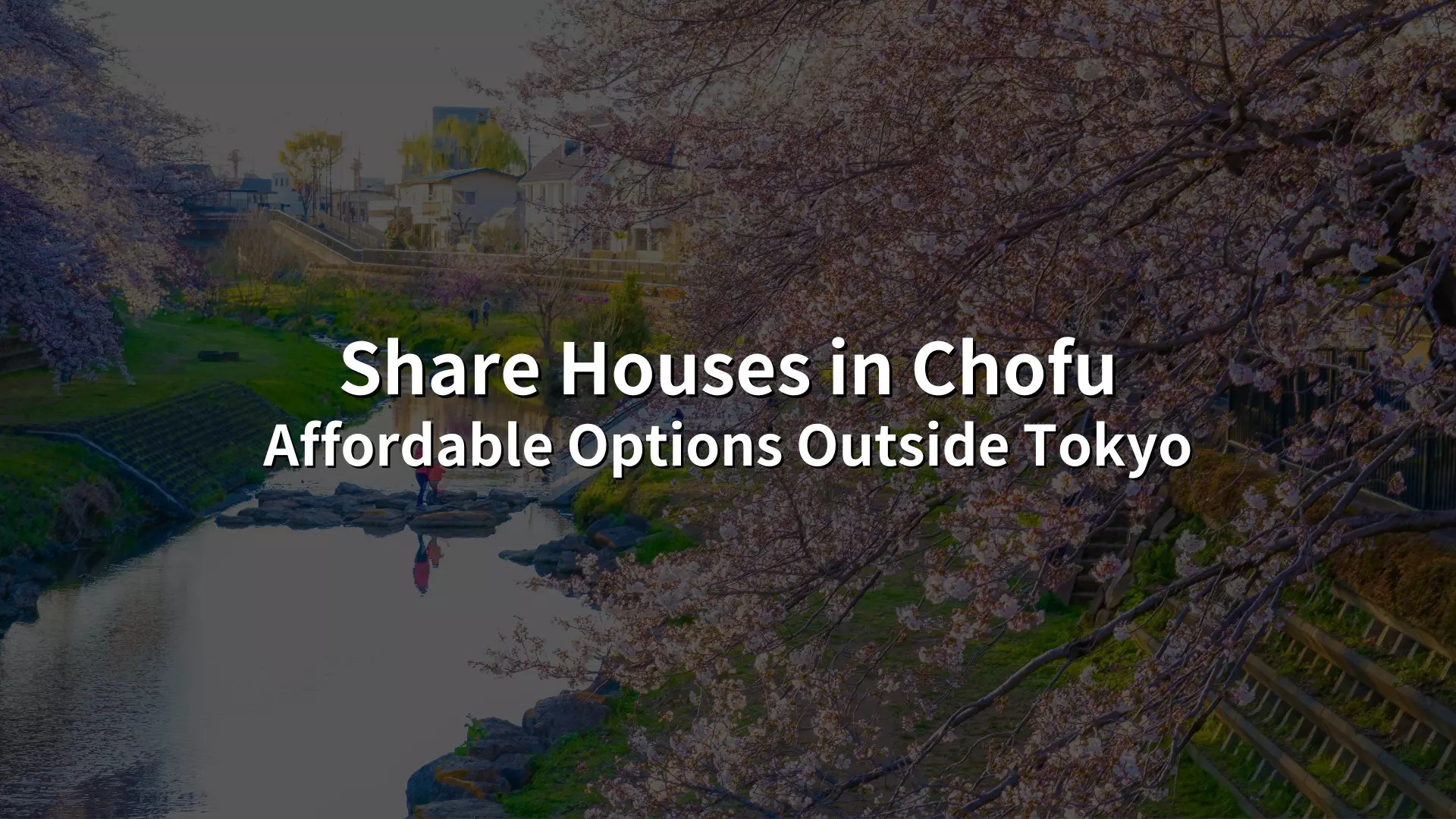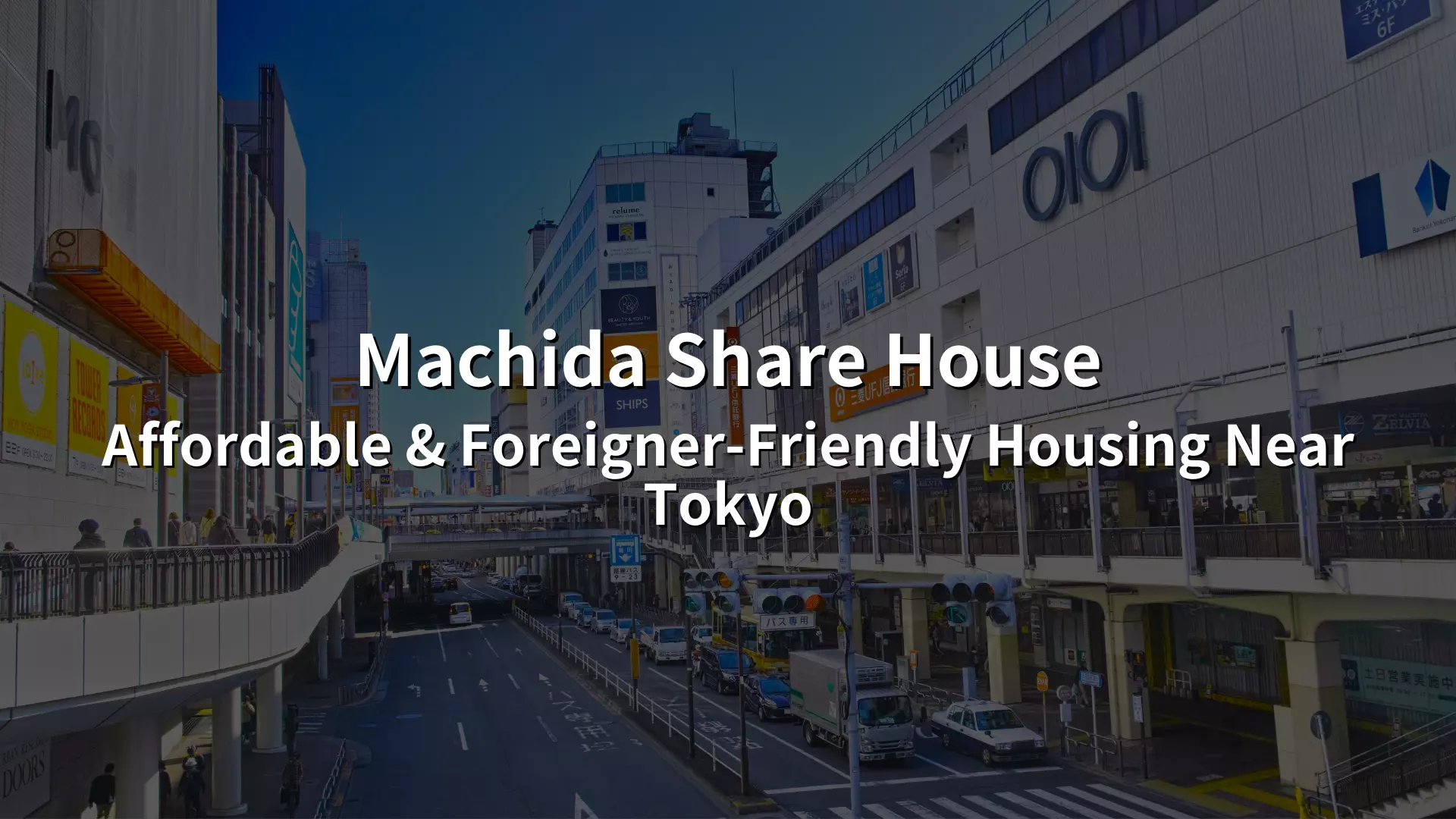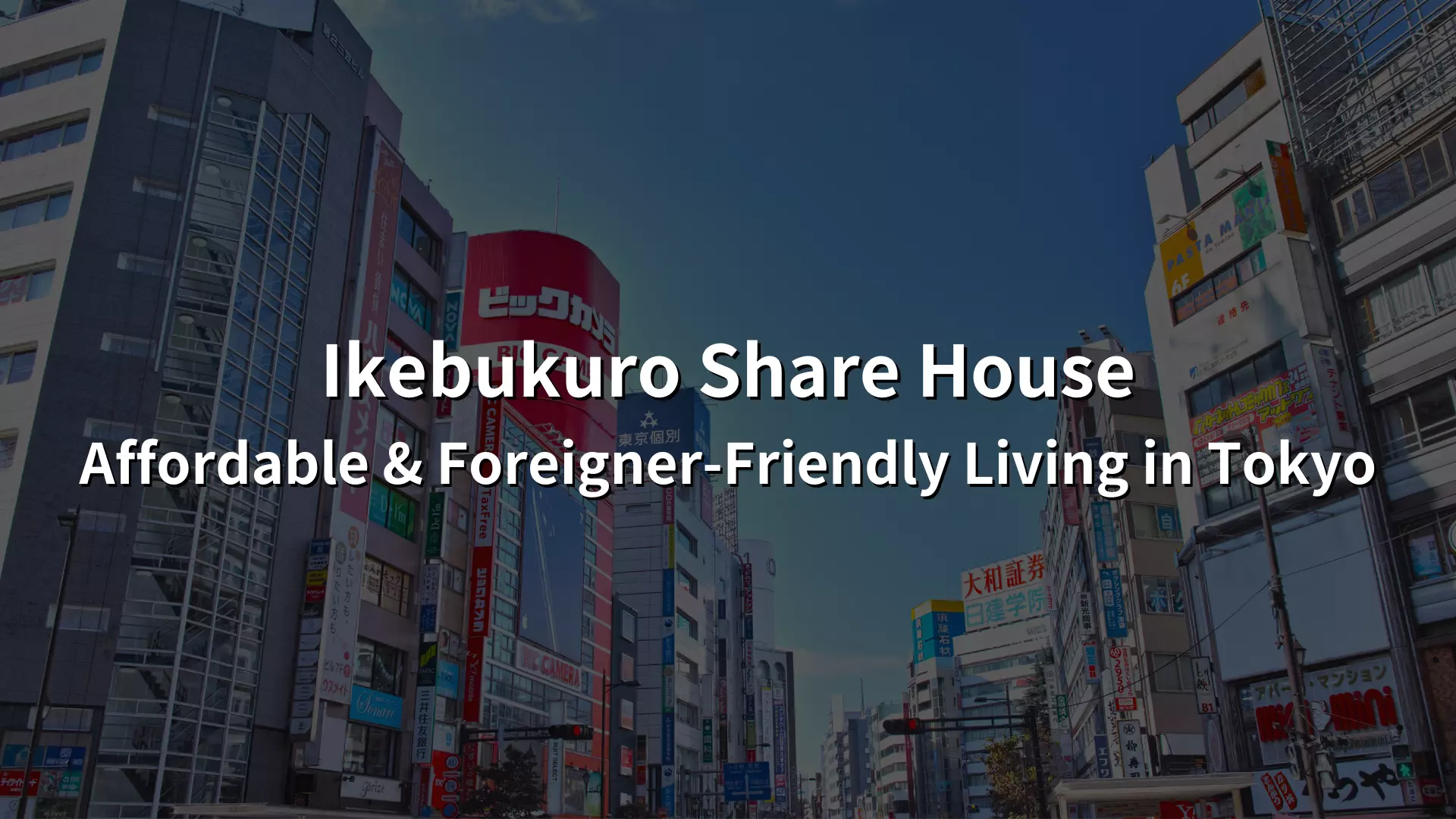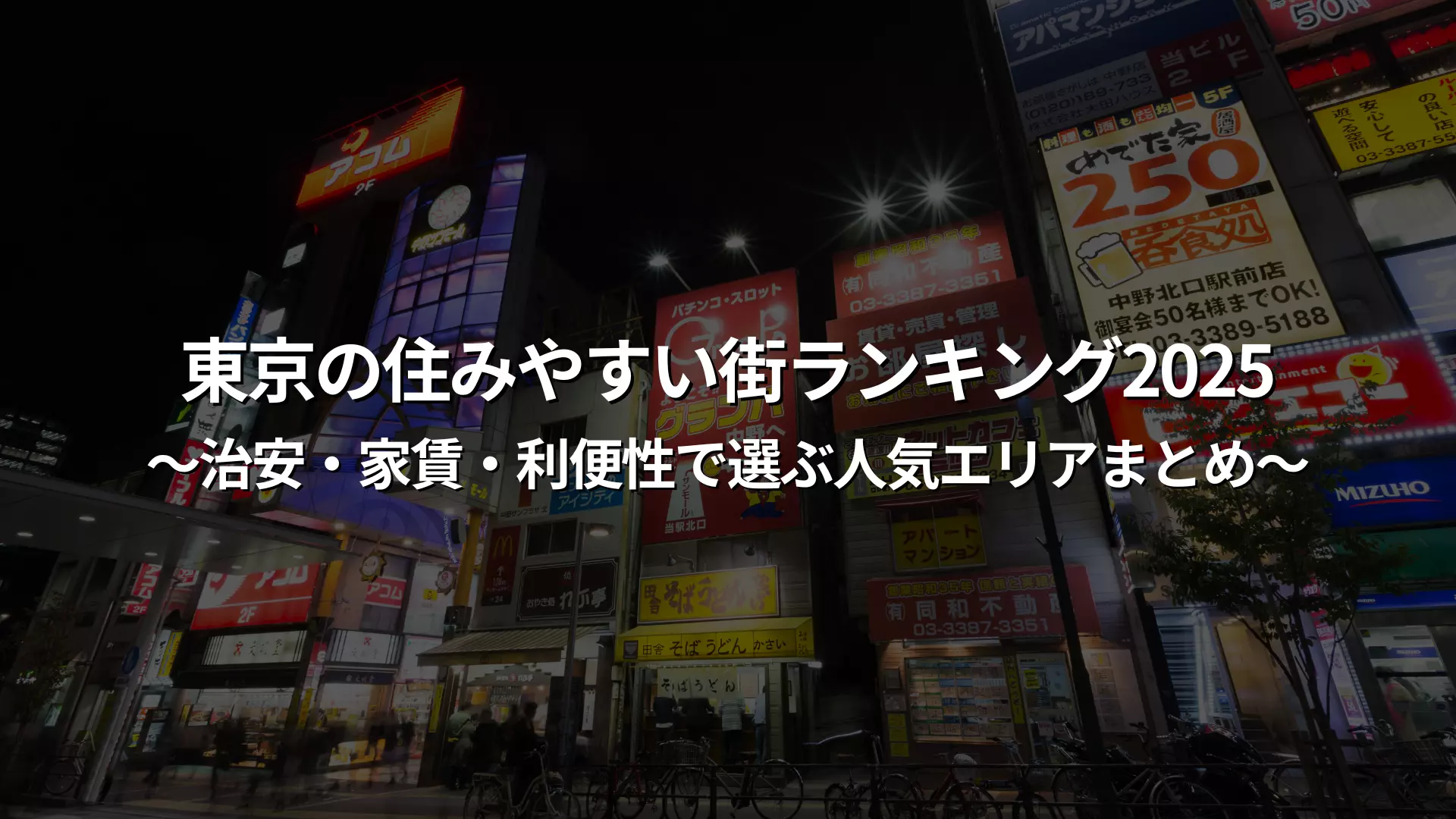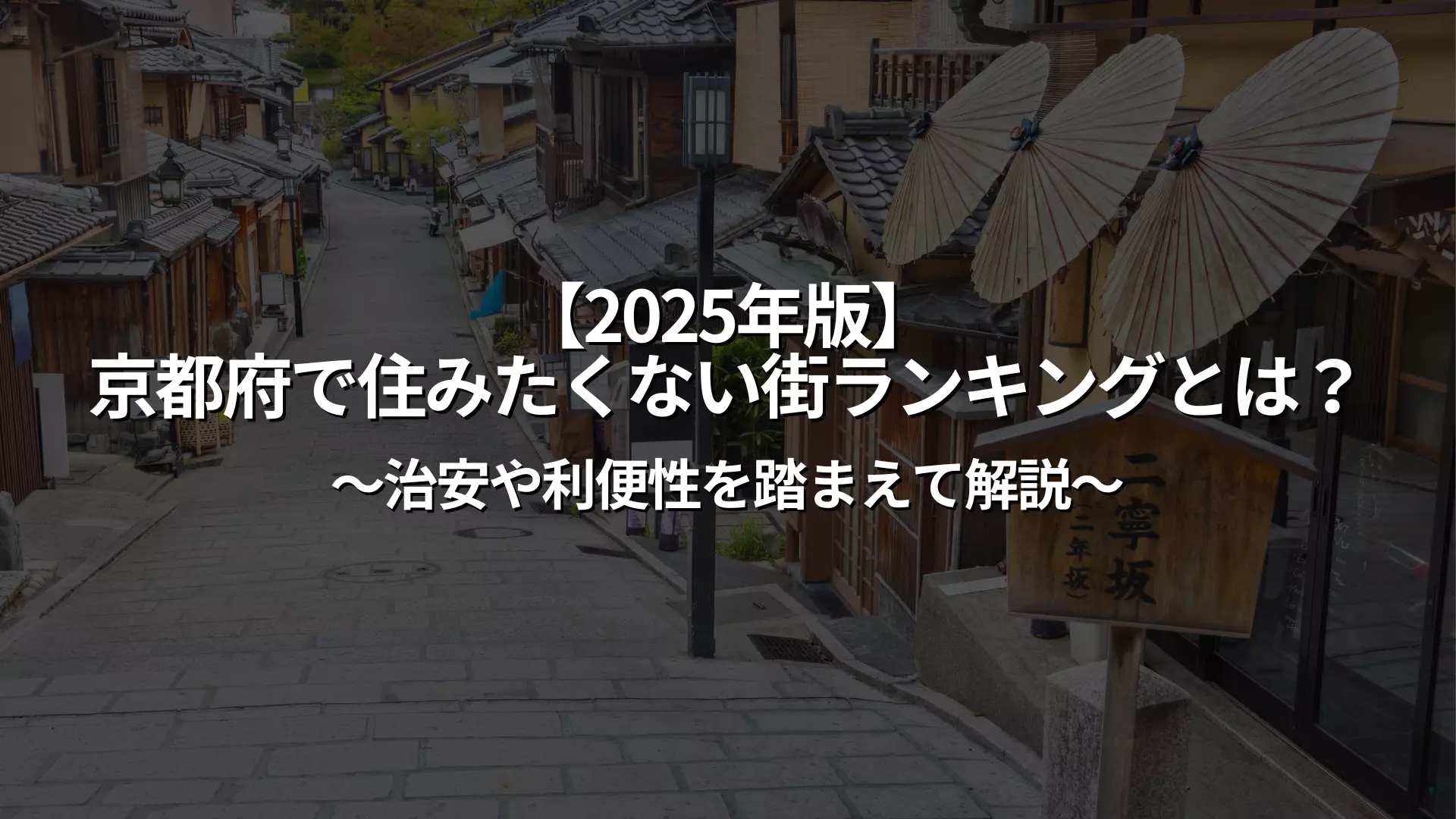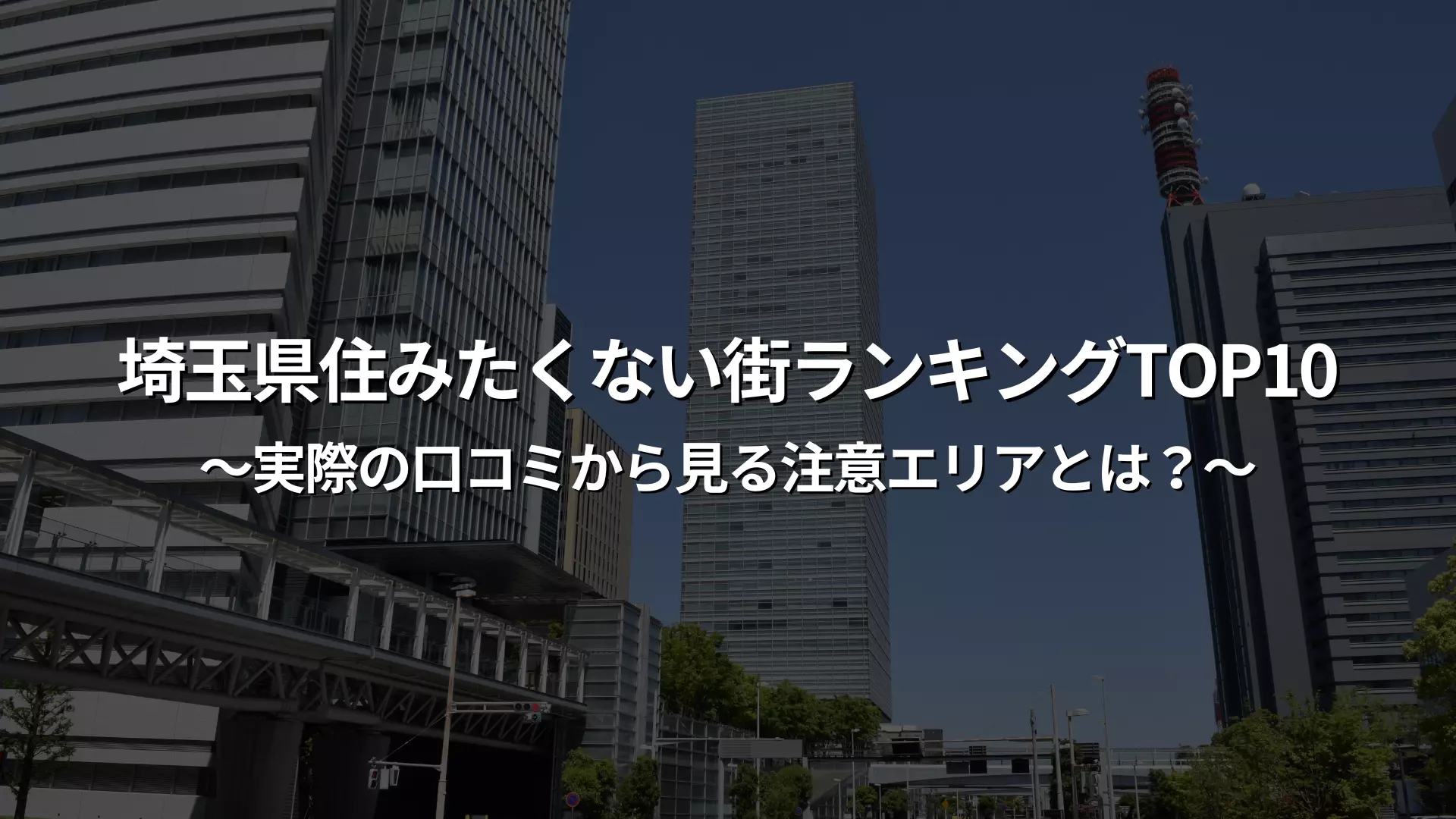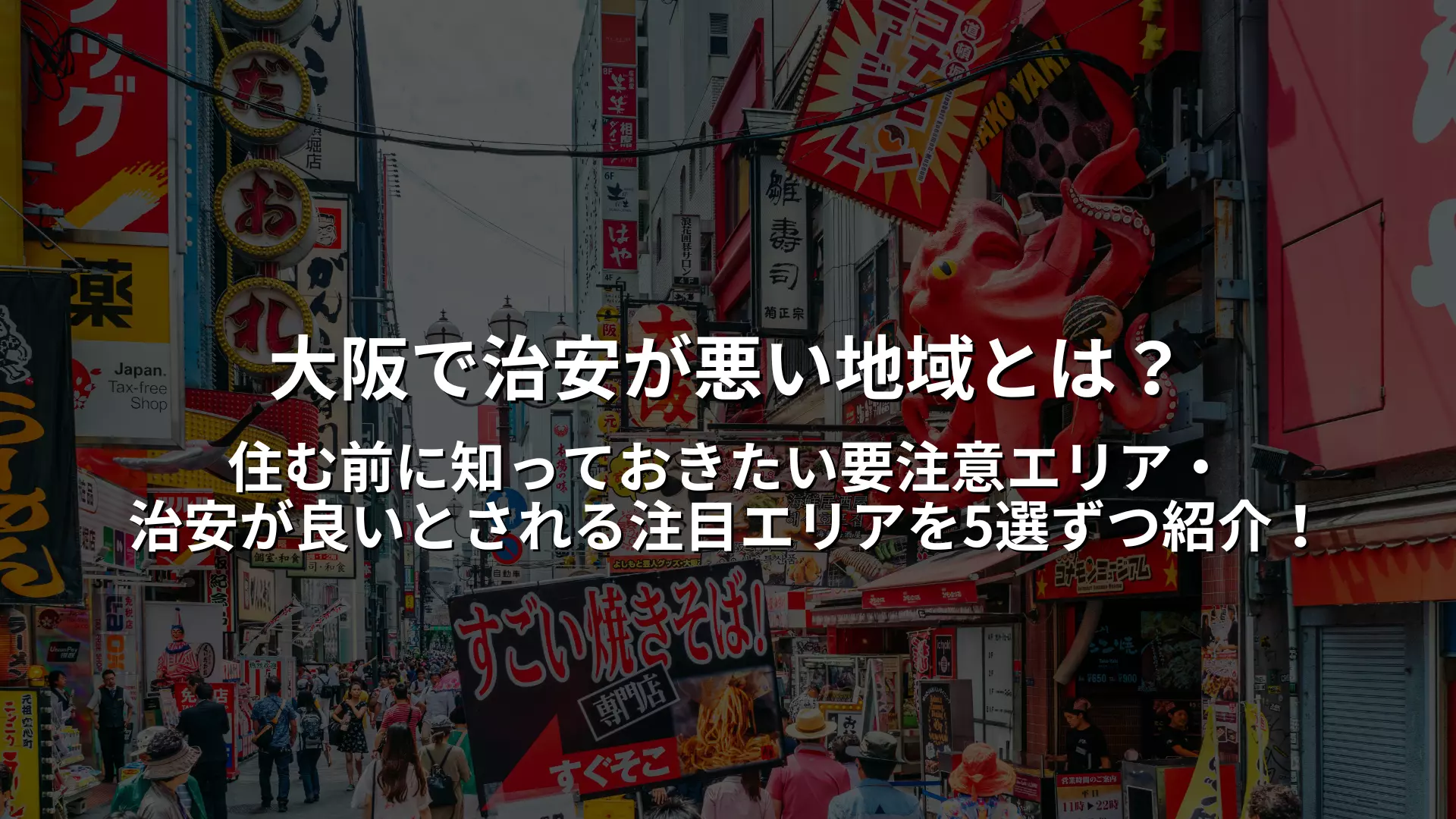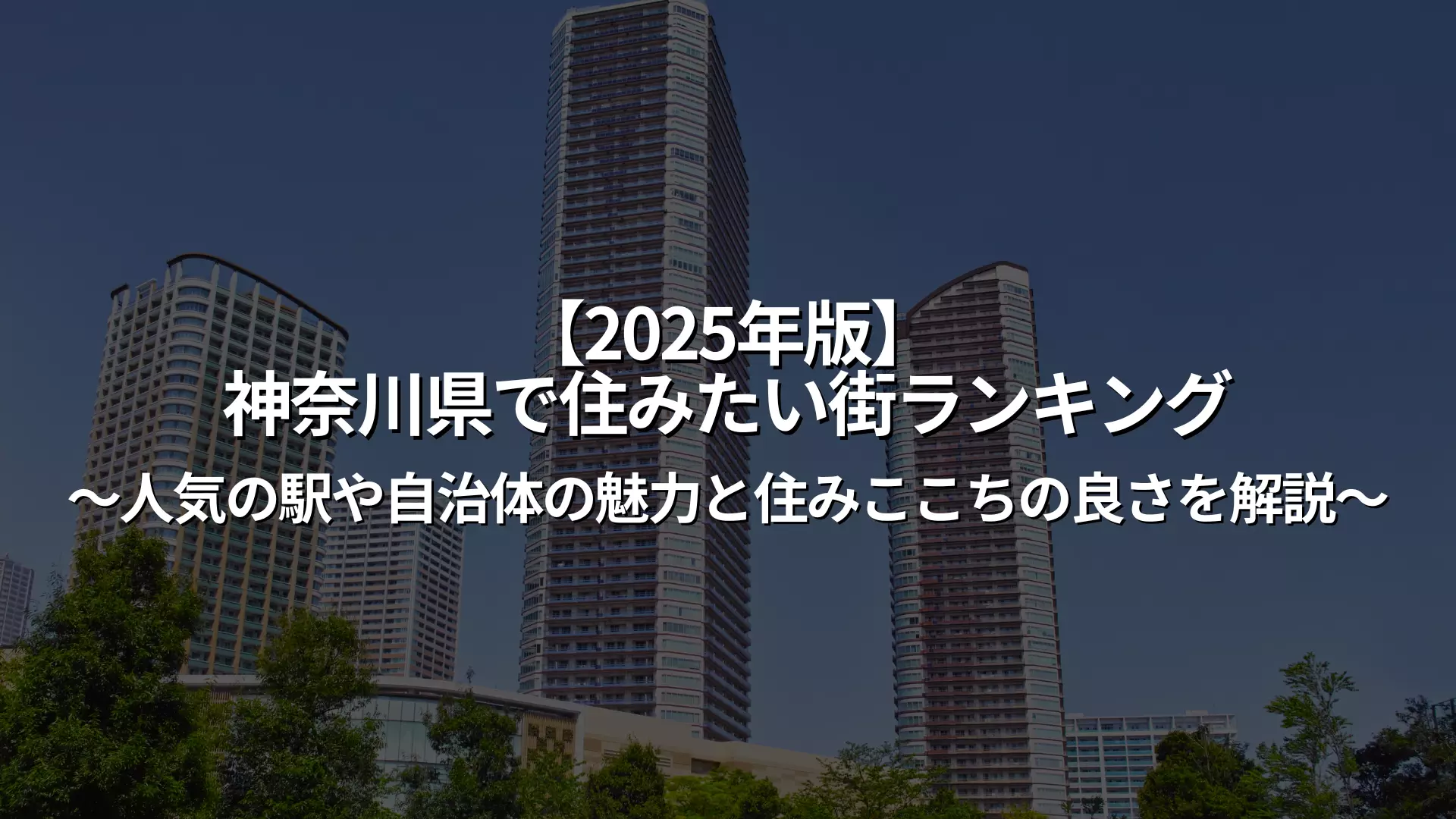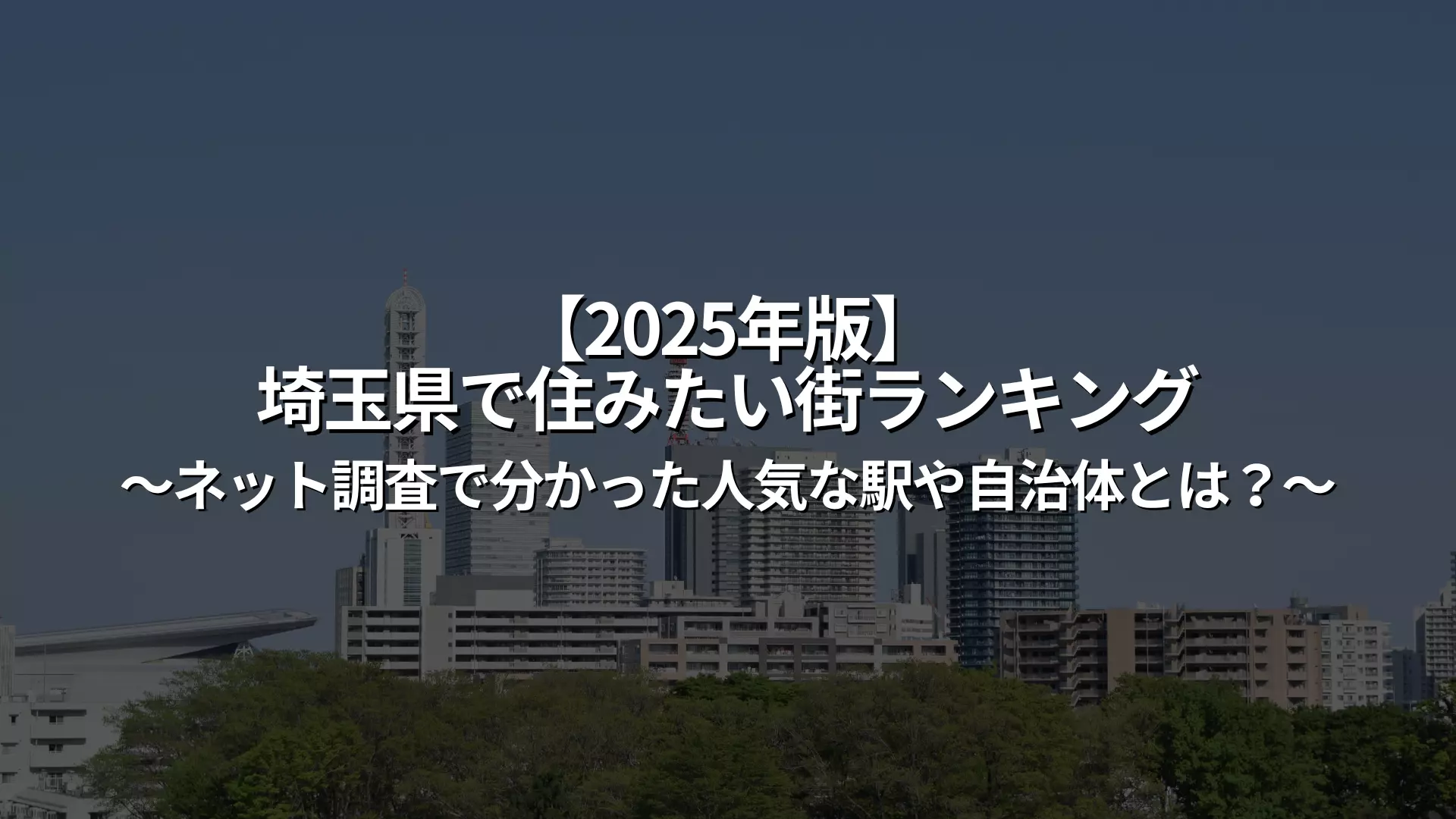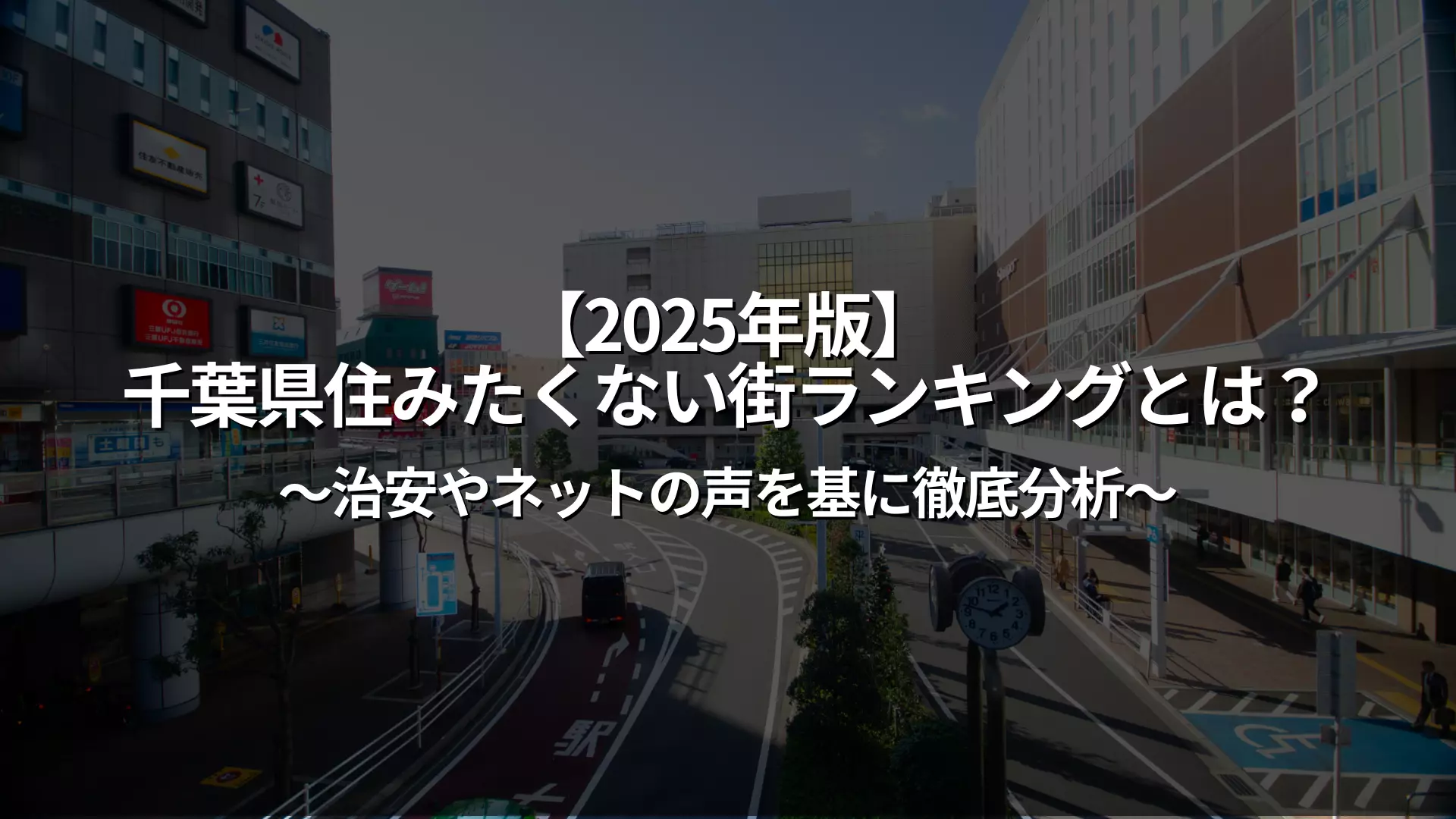What are the initial costs of a rental contract? Basic information you should know first
When renting a property, you cannot avoid the "initial costs" that arise when signing the contract. For those who thought that "I can move in as long as I pay the rent," it is not uncommon to be surprised by the amount that is higher than they expected. So, what is included in the initial costs, and when do you need to pay them?
In this chapter, we will first explain the breakdown of initial rental costs and the market average, and provide basic knowledge to help you avoid feeling like the cost is too high. This content will also be useful for those choosing a rental apartment or condominium for the first time.
Main items included in the initial cost and timing of payment
The initial costs of renting include various expenses that are paid in one lump sum at the time of signing the contract, in addition to the monthly rent.
The main items are as follows:
- Deposit: A deposit to cover the cost of restoring the property to its original condition when you move out (usually 1 to 2 months' rent)
- Key money: A fee to the property owner. Non-refundable (0-2 months)
- Brokerage fee: Commission to the real estate company (usually 1 month's rent + tax)
- Advance rent/pro rata rent: The number of days in the contract month or the rent for the following month
- Fire insurance premium: In most cases, two years' worth of insurance is paid in advance at the time of signing the contract (approximately 15,000 to 20,000 yen)
- Key exchange fee: Optional for security reasons (10,000 yen to 30,000 yen)
- Guarantor company fee: 50% to 100% of the rent for the first time
In principle, these fees must be paid in a lump sum at the time of signing the contract. Payment is usually made "at the same time as the contract is exchanged" or "when applying before signing the contract," so it is important to prepare the funds in advance. In recently built or newly constructed properties, there may be additional costs for lock changes, disinfection, etc.
How many months' rent is the average initial fee? National average and regional differences
Generally speaking, the initial cost when signing a rental contract is considered to be 4 to 6 months' rent. However, this is only a guideline and can vary greatly depending on the area and the conditions of the property. For example, in popular areas within walking distance of the station or in newly built apartments, there are still many contracts that include a deposit and key money, which can total nearly 6 months' rent. On the other hand, in regional cities, key money is often not required, and there are an increasing number of properties that can be signed for around 4 months.
| region | Average initial cost (converted into rent) |
| Central Tokyo | Approximately 5 to 6 months worth |
Osaka city | Approximately 4 to 5 months worth |
| local city | Approximately 3.5 to 4.5 months worth |
You can significantly reduce your initial costs by adding conditions such as "no deposit or key money" and "no brokerage fees" when searching for properties. Portal sites and real estate magazines also make it easy to search by conditions, so try using them.
Breakdown of initial costs that differ depending on whether you live alone or with a family
Initial costs vary depending on the type and size of the property you are signing the lease on, as well as the number of tenants. In particular, there are the following differences:
If you live alone
- Rent is usually set in the 50,000 to 70,000 yen range, and the total initial costs are around 200,000 to 400,000 yen.
- In many cases, single-person properties do not require a deposit or key money.
- Fire insurance and warranty company fees also tend to be cheaper.
- Narrow floor plans such as 1LDK and one-room apartments are the norm
For family households
- As rent increases, the deposit, key money, and brokerage fees also increase.
- If the floor plan is larger, such as a 3LDK, the guarantor company's fees will be higher.
- Many properties have high management fees and common area fees, which means monthly payments can be heavy
- There are also cases where you choose a detached house or a used apartment, and the contract terms vary depending on the property.
In other words, there is a strong tendency that "the higher the rent, the higher the initial costs," so the first step in reducing initial costs is to choose a reasonable rent setting that suits your lifestyle and household composition.
Check the details of the initial costs
The initial costs for signing a rental contract cannot be fully understood by simply saying that it is "a few months' rent." In reality, there are various nominal costs, and they vary greatly depending on the property and real estate company.
In this chapter, we will explain the details of each major initial cost item, the timing of payment, and how to determine whether it is necessary. Understand the breakdown of costs and determine which payments are mandatory and which are "optional" or added-on services. It is also important to check before moving in, as this will affect how you will be treated when canceling the contract and whether or not you will receive a refund.
Deposit and key money system and refund rules
The deposit and key money are the two most common fees when signing a rental contract.
- Deposit: This is like a security deposit that you give to the landlord to cover the costs of overdue rent or restoring the property to its original state when you move out. In most cases, it is returned after deducting repair costs at the end of the contract, but in properties where pets are allowed, additional costs may be incurred.
- Key money: As the name suggests, this is a "thank you" payment and is not refundable. Depending on the area and property, it may not be required.
Recently, the number of properties that do not require a deposit or key money has increased, but the costs when you move out can be quite high, so be sure to receive a detailed explanation and information about the items of cost when signing the contract.
Real estate agency-related fees, such as brokerage fees and guarantor fees
Real estate companies that introduce properties will incur a brokerage fee. This is set by law at a maximum of one month's rent plus tax, and most real estate companies set it within that range. However, there are also stores and websites that offer "free brokerage fees" or "half-price campaigns," and if you look around wisely, you can get a fee that is tens of thousands of yen cheaper.
The use of guarantor companies is also becoming more widespread, with the average initial fee being around 50-100% of the rent. Some guarantor companies offer specialized services such as those for students, foreigners, or pet-friendly housing, so be aware that the partner varies depending on the property. It's a good idea to check the renewal fee, payment procedures, and settlement rules when canceling the contract after signing it, to be on the safe side.
Other initial costs such as fire insurance, key exchange, disinfection, etc.
The initial costs also include service fees set by the real estate company and management company. The main fees are as follows:
- Fire insurance premium: This is mandatory to insure against fires and water leaks, and the estimated cost is 15,000 to 20,000 yen for two years. Be sure to check the details of the plan to see if the insurance coverage is sufficient.
- Key replacement fee: The cost of replacing the previous tenant's keys to strengthen security. Approximately 10,000 to 30,000 yen. It may be even more expensive for properties with auto-locks or newer apartments.
- Indoor disinfection and sterilization costs: These are optional costs that are not mandatory, but they are often automatically added to the estimate, so if you sign a contract without checking, you may end up losing money.
In addition, some real estate companies may include paid options such as "moving-in support" and "24-hour trouble reception" when you make a reservation. In addition to these additional services, be sure to ask for information and carefully check whether the estimate includes any unclear fees before signing the contract.
Search for a room
Only furnished properties with appliances are listed!
7 ways to keep initial rental costs low
The initial costs incurred when signing a rental contract can vary greatly depending on the property conditions and how the contract is made. In some cases, a little ingenuity can lead to savings of tens of thousands to hundreds of thousands of yen.
Here are seven practical money-saving tips for those who want to keep initial costs as low as possible. We will also explain the points you should check before signing a contract when looking for a rental condominium or apartment.
Search for properties with no deposit or key money
One of the most effective ways to reduce initial costs is to choose a property with no deposit or key money. These are equivalent to two to three months' rent, so a zero-to-zero property can significantly reduce your expenses. Recently, not only rental apartments and detached houses, but also recently built properties and homes that allow pets are increasingly offering no deposit or key money. On property information sites, using the filtering functions such as "zero-to-zero" and "low initial costs" can make it easier to find a room that meets your desired conditions.
Take advantage of free rent campaign properties
As a way to reduce initial costs, look out for properties with free rent or campaigns. Special offers such as "one month free rent" or "initial costs package of 50,000 yen" are often seen, especially in the off-season or in older apartment buildings. Also, make use of real estate companies' official websites and store-only campaigns. In some cases, you may be introduced to private properties that are not listed online, so it's important to clearly communicate your requirements when booking a tour.
Choose a real estate agency that offers free or half-price brokerage fees
The maximum brokerage fee is one month's rent plus tax, but you can reduce costs by using a real estate agency that charges half the fee or nothing. Recently, there are portal sites that specialize in properties with "0 yen brokerage fees," so it is effective to search while comparing stores in each area.
Also, check in advance whether detailed information is posted on the property page to determine whether it meets your desired conditions.
Reduce moving costs with furnished properties
Buying daily necessities such as a refrigerator, washing machine, and bed can cost over 100,000 yen. If you choose a rental apartment that comes with furniture and appliances, you can significantly reduce the expenses associated with moving. In addition, when viewing the apartment, it is a good idea to check what equipment is included and how many years it has been in use, for peace of mind. Some properties have model room guides and photo pages, so be sure to check in advance.
Time your lease to move in during the off-season
The rental market has a peak season (February to April) and a slow season (May to August, etc.), and initial costs can vary greatly depending on when you sign the contract. In the off-season, there tends to be an increase in properties with no deposit or key money, or free rent, so it's a chance to find a bargain that meets your desired conditions. Since high rent does not necessarily mean high initial costs, it's a good idea to keep an eye on trends in the area and around the station you want when signing the contract.
Compare guarantor companies and fire insurance if you can choose them yourself
Depending on the real estate company, you may be able to choose your own guarantor and fire insurance instead of being specified. In that case, compare multiple companies and check the "detailed information" including the guarantee contents, fees, contract procedure, and cancellation conditions. In particular, mail-order and internet-only types of fire insurance tend to be cheaper, so it is recommended to get quotes and compare them before booking.
Consider rent payments in installments or credit options
Recently, there has been an increase in rental properties where you can pay rent and initial costs in installments, and real estate services that accept credit cards. Even if it is difficult to come up with a lump sum, dividing it into monthly payments makes it easier to manage your funds and lowers the hurdle of moving. However, fees and interest may apply, so be sure to check the details in advance before using it.
What causes high initial costs? Points you may be unaware of and lose out on
When signing a contract for a rental condominium or apartment, have you ever felt that the rent is cheap but the initial costs are ridiculously high? The reason behind this may be related to costs that are easily overlooked or the contract conditions of each real estate company.
In this chapter, we will explain in detail why initial costs tend to be high and how to avoid them. If you have the right knowledge before signing the contract, you can avoid unnecessary expenses and move in smoothly.

Cases where unnecessary optional fees are included
One of the reasons why initial costs are high is when optional option costs are automatically included.
Some common items include:
- Indoor disinfection cost/sterilization construction cost
- 24-hour support service fee
- Air conditioner cleaning fee
- Pest control costs
These are often thought of as "required", but in fact there are cases where they can be removed as optional features. It is important to carefully check the details of the real estate company's guide and estimate to determine whether they are necessary or not. Be careful, as there tend to be a lot of options, especially in older used apartments and properties with a wide range of services.
If you don't check the moving-out costs in advance, you may lose out
Although it may not seem directly related to the initial costs, you should not overlook the "costs when you move out." In particular, in properties with "no deposit" policies, restoration costs and cleaning fees are often included as special provisions in the contract, and you may receive a large bill when you move out.
Please note the following:
- The contract clearly states "cleaning fee upon moving out: XXX thousand yen"
- Even if the damage was not intentional or negligent, you may be charged for replacing wallpaper or floors as a result of "damage."
- Air conditioner cleaning and key replacement fees are set as mandatory items when canceling a contract.
To avoid this, it is important to check whether there is an explanation of the moving-out costs when you view the property before signing the contract. If you have any questions, be sure to ask for an explanation on the website or in person at the store.
Beware of properties with low rent but high initial costs
Even if you think, "It's a good deal because the rent is low," there are pitfalls in that the initial costs can actually be high.
In particular, be wary of the following patterns:
- The deposit and key money are set at two months each.
- Brokerage fees and guarantor company fees are higher than market rates
- Properties with maintenance and management fees of 10,000 yen or more
- The contract period is short and the cancellation fee is high
Also, used apartments and properties with extremely cheap rents may have disadvantages such as "very old buildings," "high renewal fees," and "low convenience along train lines." Therefore, when choosing a property, it is important to compare not only the "monthly rent," but also the breakdown of initial costs, contract period, cancellation conditions, and the level of facilities. By understanding how much it will cost in total, you will be able to make a choice that will not result in a loss.
Search for a room
Only furnished properties with appliances are listed!
Let's run a simulation! Example of estimated initial costs
When signing a contract to rent a condominium or apartment, one of the things you will want to consider is "how much the initial costs will actually be."
Here, we will introduce the breakdown of initial costs and the market price in detail using three typical examples. By simulating a rough idea of your budget before moving or looking for a room, it will be easier to make a reasonable plan.
For a single person living with a rent of 60,000 yen
[Assumed conditions]
- Deposit: 1 month (60,000 yen)
- Key money: 1 month's rent (60,000 yen)
- Brokerage fee: 1 month + tax (66,000 yen)
- Advance rent: 1 month (60,000 yen)
- Guarantor fee: 50% of rent (30,000 yen)
- Fire insurance fee: 18,000 yen
- Key replacement cost: 16,000 yen
[Total initial cost] 265,000 yen
If you are looking for a 1LDK room in an urban area within a 10-minute walk from a station, the amount you pay will vary greatly depending on whether or not you require a deposit and key money. In addition, if you take into account moving expenses and the purchase of furniture and appliances, the total amount can approach 400,000 yen. If you want to keep costs down or start living alone without worrying, we recommend considering a property with furniture and appliances or a zero-zero property.
Case where rent is 80,000 yen, there is a deposit and key money, and brokerage fee is 1 month
[Assumed conditions]
- Deposit: 2 months (160,000 yen)
- Key money: 1 month's rent (80,000 yen)
- Brokerage fee: 1 month + tax (88,000 yen)
- Advance rent: 1 month (80,000 yen)
- Guarantor fee: 80% of rent (64,000 yen)
- Fire insurance fee: 20,000 yen
- Key replacement cost: 22,000 yen
[Total initial cost] 382,000 yen
In newly built rental apartments with full facilities and properties near train stations in popular areas, the deposit and key money are often set at multiple months, which can cause the cost to skyrocket. There may also be special conditions for the contract period and cancellation, so be sure to check the details. Even if the rent is a little high, there are cases where the total amount can be reduced by staying for a long time, so it is important to compare and consider the overall cost balance, not just the rent.
Cases of free rent and zero initial costs campaigns
[Assumed conditions]
- Deposit/Key money: None
- Brokerage fee: None
- Free rent for 1 month
- Guarantor fee: 50% of rent (30,000 yen)
- Fire insurance fee: 15,000 yen
- Key replacement cost: 0 yen (campaign)
- First month's rent: Free (free rent)
- Payment at time of contract: Guarantee fee + insurance only
[Total initial cost] 45,000 yen
If you take advantage of zero initial cost campaigns and free rent benefits, you can find properties that are available for less than 50,000 yen. In particular, properties that are only available on certain websites or at certain stores may come with discounts or cashbacks. However, there are cases where there are strict cancellation conditions such as "minimum one year of occupancy" or "penalty for mid-term cancellation," so it is important to check carefully when viewing or showing the property.
Also, properties with old facilities or age may require repair costs later, so you should be careful when buying second-hand apartments or cheap, old properties.
What to do when it's difficult to pay the initial costs
"I found a place I like, but the initial costs are too high and I can't afford them..." Even in such a situation, there's no need to give up. Recently, the number of housing options and payment methods has diversified, and there are more and more services that allow you to move in even if you are worried about your finances.
Here are three measures you can take if you find it difficult to pay the initial costs.
Find a real estate company that accepts installment payments and credit cards
If you cannot pay the initial fee in one lump sum, it is effective to look for a real estate agency that allows installment payments or credit card payments. These options are increasing, especially at stores that allow online contracts and real estate websites aimed at young people.
[Common response examples]
- Initial payment installments: 3 to 12 installments available (via credit company)
- Credit card payment: VISA, Master, JCB, etc.
- Partial payment by card possible (e.g. only brokerage fee)
Not only is there flexibility in payment methods, but the process is also smooth. However, since interest and fees are added when paying in installments, it is essential to check the detailed conditions and information materials.
Check the terms and conditions of the rent guarantee company
Nowadays, it is becoming more common to use a rent guarantee company instead of a guarantor, but the screening process and fees vary greatly depending on the guarantor company.
[Comparison points]
- Initial deposit: 50% or 100% of the rent, etc.
- Whether or not there is an annual renewal fee and the amount (usually around 10,000 yen)
- Possibility of installment payments or deferred payment
In addition, some companies may have different affiliated guarantor companies depending on the area or line, so it is a good idea to check when booking a tour or during the contract explanation stage. In order to reduce your payment burden, be sure to carefully choose which guarantor company to use.
Take advantage of cost-saving housing services
There are also services that can significantly reduce costs, such as "zero initial costs" and "no deposit, key money, or brokerage fees required."
[Typical service examples]
- Furnished apartments and shared housing with no initial costs
- Subscription-type properties with a monthly fee that allows you to move freely
- Management companies with strengths in urban areas, such as Cross House
These services are often newer properties, but there are no storefronts and everything is done online, so you can easily make reservations to view properties and complete contract procedures. They are also recommended for times of uncertainty, such as when you've suddenly moved or changed jobs.
Search for a room
Only furnished properties with appliances are listed!
Summary | Understand the average initial costs and tips to reduce them
The initial costs incurred when signing a rental contract can amount to four to six months' rent, which can be a huge burden for those considering moving. However, by simply understanding the breakdown of costs, the going rate, and tips on how to keep costs down, it is possible to save money wisely.
Be creative in your property selection and contract terms to find a room that is cost-effective.
Get into the habit of comparing and checking the necessary information before signing a contract.
In order to keep initial costs low, it is important to first get into the habit of comparing and gathering information. Even if properties have similar layouts, ages, and walking distances from the station, the amount you pay can vary greatly depending on the contract terms.
[Major points to compare]
- Presence or absence of deposit and key money and their amount
- Brokerage fees are free, half price, or one month
- Fire insurance and guarantee company options and details
- Optional fees such as key exchange fees and disinfection fees
- Free rent and campaign properties available
It is important to read the contract and important information carefully, and not just follow the explanation, but to make sure you are satisfied with the terms and conditions before signing. Make it a habit to check the terms and conditions when you are actually shown the property, not just the information on the property page.
Make a plan to move in smoothly
In order to avoid paying too much initial costs when moving and ending up with insufficient living expenses, it is very important to make a financial plan before moving.
[Costs to be included in the plan]
- Initial costs (deposit, key money, agency fee, fire insurance, etc.)
- Moving company fees, transportation fees, and travel expenses
- Expenses for purchasing furniture and home appliances such as refrigerators, washing machines, and lighting
- 1-2 months' worth of living expenses after moving in (electricity, gas, water, food)
Also, by checking the timing of contract issuance, cancellation conditions, and renewal fee structure in advance, you can prepare for long-term payments with peace of mind. For example, you may be able to balance the total costs better by considering a property that is close to the station and older but has lower initial costs, rather than a newer property with high rent. Being aware of the overall picture of the contract, not just the rent, is the first step to starting your new life with peace of mind.

